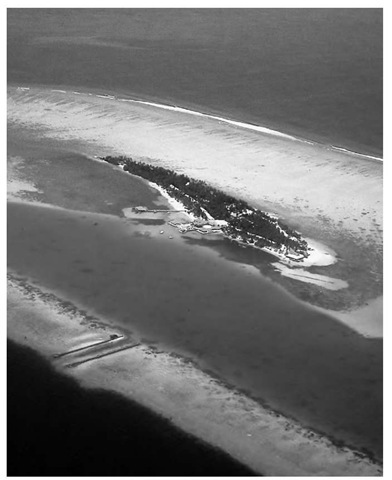The alliance of Small Island States (AOSIS) is an umbrella lobby and negotiating body representing the interests of low-lying and small island states at the level of the United Nations. AOSIS has played an important role in shaping international climate change policy by ensuring that the concerns of small island developing states are represented on an international level.
Specifically, AOSIS has been a leading advocate for reductions in global greenhouse gas emissions. Operating on an ad hoc basis and primarily through the diplomatic missions of its member countries, AOSIS has no formal charter, no regular budget, and no secretariat organizing the group’s work. Decisions are made based on consultation with member states, with major policy decisions made in ambassadorial plenary sessions. The alliance operates on a consensus basis, requiring all members to be in agreement before a decision can be formalized.
AOSIS traces its inception to the 1989 Small State Conference on Sea Level Rise, held in the Maldives, where a proposal to establish an action group to address issues related to small island developing states was presented. AOSIS first met as an official group in 1990 during the Second World Climate Conference. Though the alliance was first formed to address sea level rise and other threats caused by climate change, its focus has broadened over time to include a variety of development or trade-related issues.
With an initial membership of 24 states, as of 2007 AOSIS had grown to a coalition of 43 members and observers from around the world. The members and observers of AOSIS originate from three regions: the Caribbean, the Pacific, and the African, Indian Ocean and South China Seas (AIMS). Many of the alliance’s members also belong to the United Nation’s Group of 77 and China (G77), an intergovernmental organization composed of developing states within the UN system.
The AOSIS member and observer states are heterogeneous. They vary along geographic, economic, social, linguistic, and political lines; yet despite these differences, they face many of the same development challenges, including their geographic isolation, small political voice, and limited economic clout. However, the characteristic that unites AOSIS states is their potential to be severely affected by climate change and sea-level rise. Though small island states produce relatively minute amounts of carbon dioxide, methane, and other greenhouse gases, these countries will be profoundly affected by climate change, given their low elevations. As many of the countries participating in the alliance are located only a few meters above sea level, climate change and its effect on rising sea levels has historically been one of the key issues addressed by the alliance.
Traditionally, due to their weak political influence, small island states have had difficulty being heard internationally. As a result of their position within the international system, concerns specific to small island and low-lying states have often been lost amongst other international issues. AOSIS seeks to mitigate this situation by providing a collective voice for its members and applying greater pressure to the rest of the international community. As a group, small island states have a greater international voice and are in a better position to effect change than as individual negotiators. As a result, ASOSIS has increased the representation of small island developing states and lowland areas within the UN system.
The AOSIS, begun in the vulnerable Maldives, began calling for a 20 percent reduction of CO2 emissions as early as 1994.
Historically, AOSIS has favored and pursued legally-binding agreements or hard laws to address issues such as sea-level rise, while the remainder of the international community has generally favored soft law agreements, especially with regards to climate change and the environment more broadly. In this regard, AOSIS has led or been involved with numerous international treaties, conferences, and negotiations.
The Alliance of Small Island States was one of the first groups to submit a draft protocol addressing climate change under the UN Framework Convention on Climate Change. This proposal, submitted in 1994, called for a 20 percent reduction of CO2 emissions by 2005.
Further, AOSIS’s involvement and awareness-raising activities surrounding the negotiations of the Kyoto Protocol facilitated the incorporation of issues of concern to small island development states, such as capacity-building and dispute resolution mechanisms.
Aside from climate change negotiations, AOSIS has also lobbied for greater recognition of the special needs of small island developing states. As a result of AOSIS activities, a program of work on small island developing states was adopted during the UN Conference on Environment and Development in 1992. These activities were increased in 1994 with the adoption of the Barbados Program of Action for the Sustainable Development of Small Island Developing States, which provided a framework for the sustainable development of small island states.
In 2004, at the Small Island Developing States Inter-Regional Meeting, a draft document entitled "Alliance of Small Island States (AOSIS) Strategy for the Further Implementation of the Barbados Program of Action for the Sustainable Development of Small Island States" was presented. This strategy further advanced the cause of small island states on the international stage.

